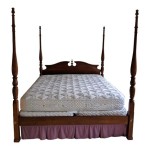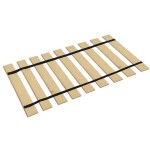Do Bed Bugs Live in Bags?
Bed bugs are notorious for their ability to hitchhike into homes and quickly infest mattresses, furniture, and other areas. However, the question of whether bed bugs can live in bags is a common one, particularly when it comes to luggage, backpacks, and other items that are frequently transported. While the answer isn't always straightforward, there are several factors to consider.
Bed Bugs and Their Habitat
Before diving into the specifics of bags, it's essential to understand bed bug biology and their preferred habitats. Bed bugs are small, nocturnal insects that feed on human blood. They thrive in warm, dark, and secluded environments where they can easily access their hosts.
While mattresses and bedding are prime targets for bed bug infestations, these pests can inhabit various locations, including:
- Furniture upholstery
- Baseboards
- Cracks and crevices in walls
- Clothing
- Carpets
Bed bugs are highly adaptable and can survive for extended periods without food. They can also hide in small spaces and travel considerable distances to find food, making them difficult to eliminate.
Bags as Potential Bed Bug Habitats
Bags, especially those made of fabric or soft materials, can provide a suitable habitat for bed bugs under certain conditions. Several factors influence the likelihood of bag infestations:
- The bag's material: Fabric bags, particularly those with seams and folds, offer more hiding places for bed bugs than hard-sided luggage.
- The bag's contents: Bags containing clothing, bedding, or other items that harbor bed bugs are more susceptible to infestation.
- The bag's history: Bags that have been in a bed bug-infested environment (like a hotel room) may already contain bed bugs or their eggs.
How Bed Bugs Can Enter Bags
Bed bugs can enter bags through various means. The most common ways include:
- Direct contact: If a bag is placed on a bed bug-infested surface, bed bugs can crawl into the bag seeking a new home.
- Infested items: Packing clothing or other items that have been exposed to bed bugs can introduce the pests into a bag.
- Travel: Bringing a bag from a bed bug-infested location, such as a hotel, can easily transport bed bugs to a new environment.
Preventing Bed Bug Infestations in Bags
Several preventive measures can reduce the risk of bed bugs entering your bags and infesting your home.
- Inspect hotel rooms: Before settling in, examine the bed, furniture, and surrounding areas for signs of bed bugs. These signs include small reddish-brown spots (bed bug droppings), shed skins, and live bed bugs.
- Store bags securely: Keep bags off the floor in hotels and other unfamiliar environments to prevent bed bugs from crawling in.
- Wash or dry clean: Upon returning home, wash or dry clean all clothing and other items that were packed in a bag, especially if you suspect bed bug exposure.
- Vacuum bags: Thoroughly vacuum the inside and outside of bags, particularly if they have been in a bed bug-infested area. Empty the vacuum cleaner bag outside the home and seal it tightly before discarding.
- Consider heat treatment: For further protection, consider heat treating bags in a dryer on high heat for 30 minutes to kill bed bugs and their eggs.
Additional Tips
Bed bug infestations can be challenging to eliminate, so preventative measures are crucial. Here are some additional tips:
- Be vigilant: Regularly inspect clothing, furniture, and bedding for signs of bed bug activity.
- Contact a professional: If you suspect a bed bug infestation, immediately contact a qualified pest control professional for treatment and prevention advice.
Understanding how bed bugs move and spread is essential to prevent infestations. By following these guidelines, you can minimize the risk of bringing bed bugs home in your bags and protect your home from these unwelcome guests.

How Long Do Bed Bugs Live In A Plastic Bag Killing Using The Pest Informer

How Long Do Bed Bugs Live In A Plastic Bag Abc Blog

Bed Bugs In Luggage How To Check Your For

Where Do Bed Bugs Live How To Find Their Hiding Spot Terminix

How Long Do Bed Bugs Live In A Plastic Bag Pestseek

How Long Can Bed Bugs Live In A Plastic Bag Correct Answer

How Long Do Bed Bugs Live In A Plastic Bag Pestseek

How Long Do Bed Bugs Live In A Plastic Bag Answered

How Long Do Bed Bugs Live In A Plastic Bag 2024 Updated

The Best Way To Clean Handbags And Prevent Bed Bugs Bedbugs







